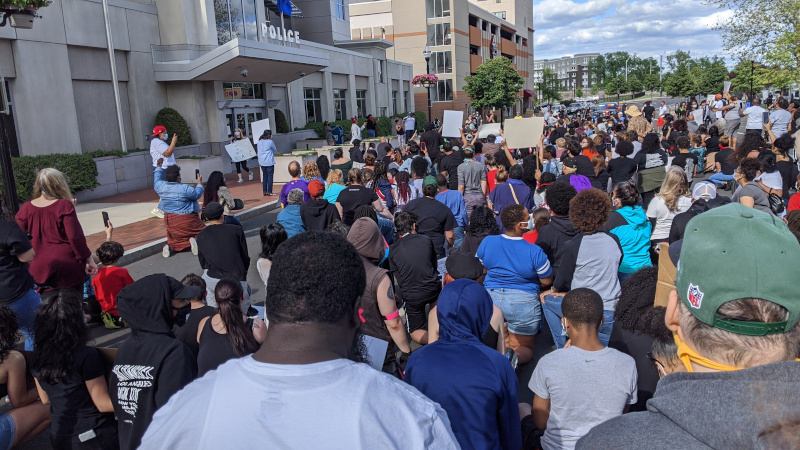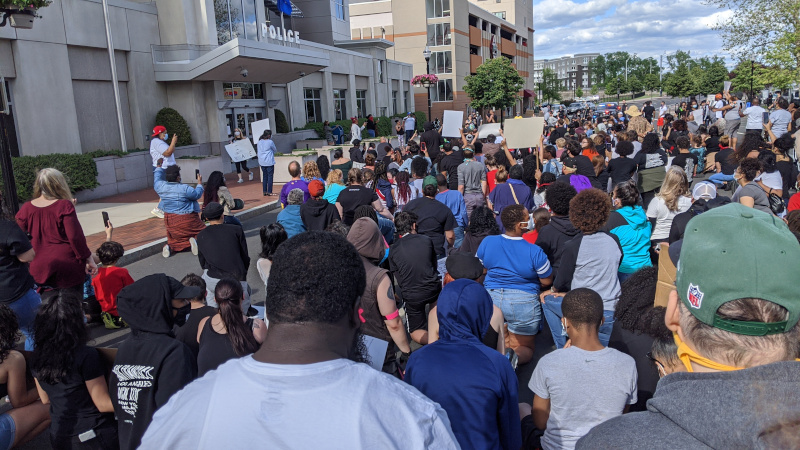New Britain’s three Democratic State Representatives voted for the proposed police accountability legislation, while the one Republican opposed.

State Representative Rick Lopes (D-24), State Representative Bobby Sanchez (D-25) and State Representative Peter Tercyak (D-26) voted in favor of the legislation, while State Rep. William Petit (R-22) voted in opposition.
The legislation was approved after a marathon legislative session that started on July 23, 2020 and went through the night. The final vote on the legislation was at 9:03am yesterday morning, July 24th.
The main item of contention in the bill was the part allowing lawsuits to be brought against police officers if they are accused of violation a part of the new legislation saying that,
No police officer, acting alone or in conspiracy with another, shall deprive any person or class of persons of the equal protection of the laws of this state, or of the equal privileges and immunities under the laws of this state, including, without limitation, the protections, privileges and immunities guaranteed under article first of the Constitution of the state.
The new lawsuit provision would require cities and towns to defend their police officers in court in such cases and cover any monetary damages awarded in such a lawsuit, unless the officer’s actions were, “a malicious, wanton or wilful act.”
Republicans introduced an amendment to remove the lawsuit provision, but that amendment was voted down in a 72 to 72 tie vote. Petit voted for the amendment and Lopes, Sanchez and Tercyak voted against it.
In addition to the police lawsuit provision, the legislation makes a number of other changes to the laws concerning policing in the state.
The new law would explicitly provide that the local legislative bodies, the City Council in New Britain, would have the power to create a civilian police review board, saying that,
The legislative body of a town may, by ordinance, establish a civilian police review board. The ordinance shall, at a minimum, prescribe: (1) The scope of authority of the civilian police review board; (2) the number of members of the civilian police review board; (3) the process for the selection of board members, whether elected or appointed; (4) the term of office for board members; and (5) the procedure for filling any vacancy in the membership of the civilian police review board.
The new provision would apparently override the City Charter of New Britain, which makes all local commission appointments by the mayor, alone. The new law appears to empower the City Council to decide how the civilian police review board would be elected or appointed and how vacancies on the board would be filled.
The new proposed law would go on to give such a civilian police review board the power to,
(1) Issue subpoenas to compel the attendance of witnesses before such board; and (2) require the production for examination of any books and papers that such board deems relevant to any matter under investigation or in question.
The legislation would set new limits on police “frisking” and on searches of motor vehicles. The bill, if approved as law, also, according to the Office of Legislative Research, “expands the requirement to use body cameras to police officers,” and, “requires these officers to use dashboard cameras in police patrol vehicles.”
The proposed law, according to the Office of Legislative Research, “Limits the circumstances when a law enforcement officer’s use of deadly physical force is justified and establishes factors to consider in evaluating whether the officer’s action was reasonable,” and “Establishes when the use of chokeholds and similar restraints is justified.”
The new law would change the way police use of force investigations work in the state from being by regional prosecutors, who work regularly with police departments, to a new Office of the Inspector General, who would have the power to investigate police officers and prosecute in cases of misconduct.
The legislation would also create an increased penalty for making false reports to police or false 911 calls,
with specific intent to falsely report another person or group of persons because of the actual or perceived race, religion, ethnicity, disability, sex, sexual orientation or gender identity or expression of such other person or group of persons.
The proposed law changes the membership of the Police Officer Standards and Training Council (POST), according to the Office of Legislative Research, by “(1) adding a member to the council, (2) reducing the number of gubernatorial appointments from 17 to 11 and adding six legislative appointments, and (3) requiring representation from additional stakeholders.”
The legislation would allow POST to revoke its certificate to be a police officer if an officer,
has been found by a law enforcement unit … to have engaged in conduct that undermines public confidence in law enforcement, including, but not limited to, discriminatory conduct, falsification of reports or a violation of the Alvin W. Penn Racial Profiling Prohibition Act
The new law would prevent police union contracts from stopping, “the disclosure of disciplinary matters or alleged misconduct” by police officers under the State’s Freedom of Information laws.
The legislation would mandate that,
Not later than January 1, 2021, and annually thereafter, the board of police commissioners, the chief of police, the superintendent of police or other authority having charge of a law enforcement unit that serves a community with a relatively high concentration of minority residents shall report to the Police Officer Standards and Training Council on the community’s efforts to recruit, retain and promote minority police officers.
The new law would ban the acquisition by police departments of,
military designed equipment … that is (A) a controlled firearm, ammunition, bayonet, grenade launcher, grenade, including stun and flash-bang, or an explosive, (B) a controlled vehicle, highly mobile multi-wheeled vehicle, mine-resistant ambush-protected vehicle, truck, truck dump, truck utility or truck carryall, (C) a drone that is armored or weaponized, (D) controlled aircraft that is combat configured or combat coded or has no established commercial flight application, (E) a silencer, (F) a long-range acoustic device, or (G) an item in the federal supply class of banned items.
The legislation would require police departments to report this military equipment that they already have to the state legislature by December 31, 2020.
The legislation includes numerous other proposed laws, including provisions for behavioral health assessments and substance abuse testing of police officers, provisions for statewide crowd management policies and a requirement for implicit bias training for all police officers.
The legislation now goes to the State Senate. If approved there, it would go Gov. Ned Lamont (D-CT), who would decide whether to sign it into law.




